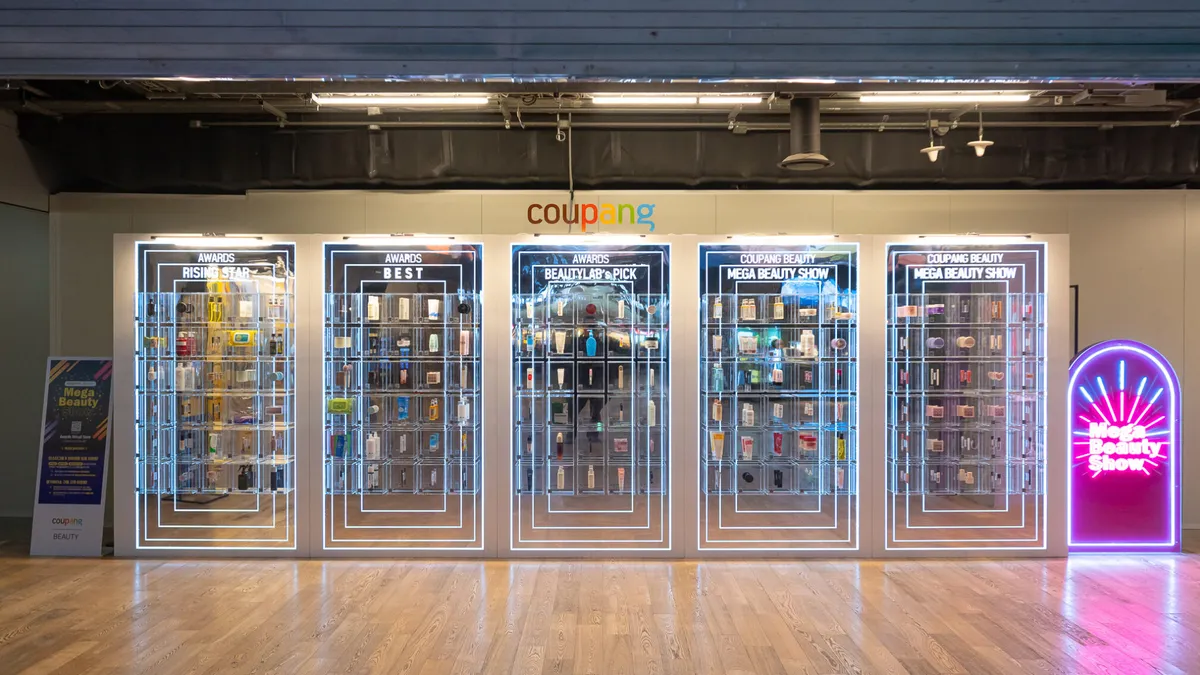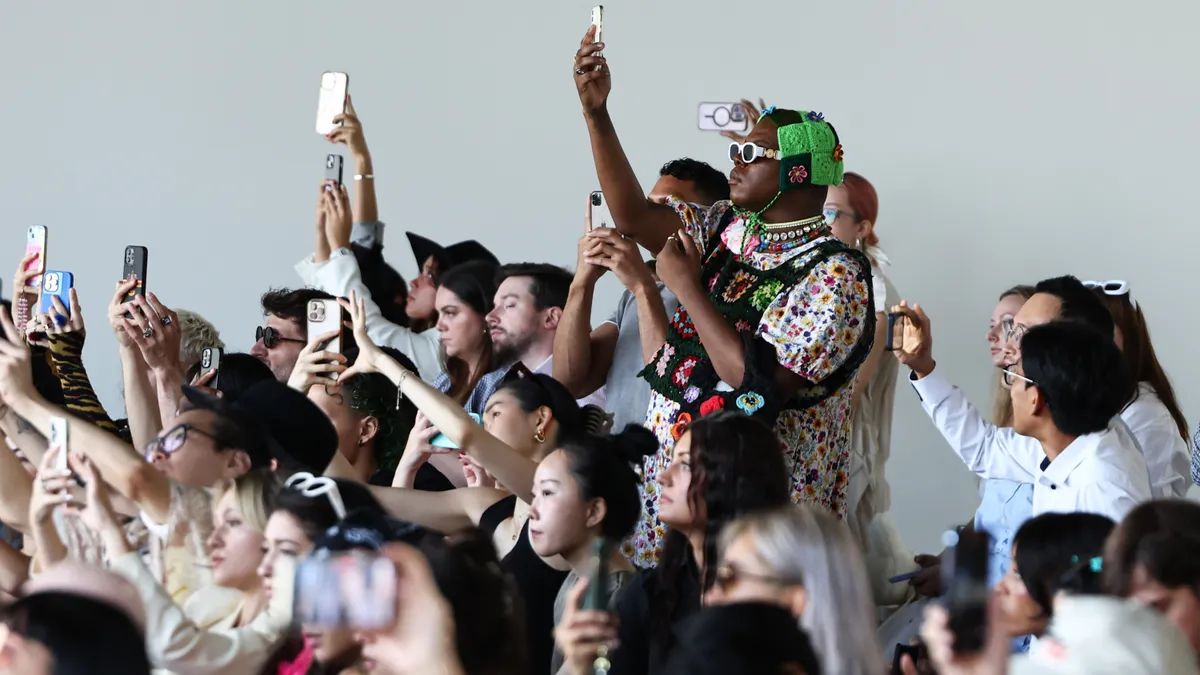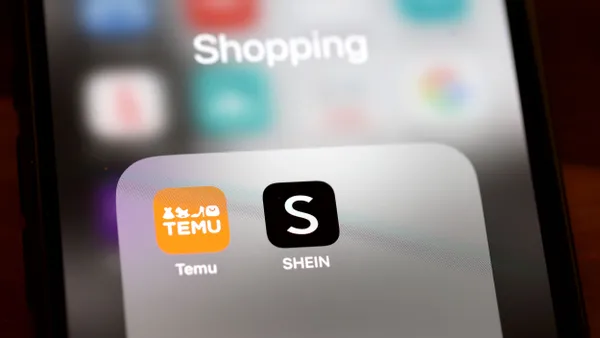Dive Brief:
- Farfetch will be acquired by Coupang in a $500 million deal, the company announced Monday in a press release.
- Pursuant to the completion of the sale, Farfetch announced that “holders of its Class A and B ordinary shares and its convertible notes will not recover any of their outstanding investments” and that the company “is also expected to be delisted from the NYSE and to be liquidated.”
- The company’s previous agreement with Compagnie Financière Richemont and Symphony Global to acquire a 47.5% stake in the Yoox Net-a-Porter platform has also been terminated, per a Richemont press release.
Dive Insight:
Speculations have swirled that Farfetch was planning to go private ever since the company canceled its Q3 earnings call last month.
Following the earnings cancellation, Richemont released a statement saying it “would like to remind its shareholders that it has no financial obligations towards FARFETCH and notes that it does not envisage lending or investing into FARFETCH.”
Farfetch was also downgraded by Moody’s last week and placed on review for a further downgrade.
Now that e-commerce firm Coupang, along with investment partner Greenoaks, has agreed to acquire Farfetch’s business and assets, the $500 million capital influx from the deal is expected to allow Farfetch to “continue providing exclusive brands and boutiques with bespoke, cutting-edge technology and giving leading designers access to consumers around the globe,” per the Coupang release.
“Farfetch is a landmark of the luxury landscape and has been a transformative force in demonstrating that online luxury is the future of luxury retail,” Bom Kim, founder and CEO of Coupang, said in the release. “Farfetch will rededicate itself to providing the most elevated experience for the world’s most exclusive brands, while pursuing steady and thoughtful growth as a private company. We also see tremendous opportunities to redefine the customer experience for luxury clients everywhere.”
Coupang, which is based in the U.S., was recently called “the Amazon of Asia” by Fortune Magazine. The company reported net revenues of $6.2 billion and a gross profit increase of 27% year over year to $1.6 billion in its Q3 earnings last month.
José Neves, Farfetch’s founder, CEO and chair, will remain with the company following the acquisition, but the rest of the board will be dissolved, per Farfetch’s release. The release does not detail what role Neves will have moving forward.
“Coupang’s proven track record and deep experience in revolutionizing commerce will enable us to deliver exceptional service for our brand and boutique partners, as well as for our millions of customers around the world,” Neves said in the Coupang release. “We are thrilled to be partnering with such a respected Fortune 200 company that is committed to investing in innovations that transform all aspects of the customer experience with Farfetch.”
Meanwhile, Richemont said in its release that it will now “consider alternative options to pursue the realisation of its Luxury New Retail (“LNR”) vision.” It added that YNAP had not yet adopted its planned implementation of Farfetch Platform Solutions and that it still operates on its own technology. Following the termination of the agreements with Farfetch and Symphony Global, “Richemont will re-evaluate options for YNAP to best harness its strengths and potential under new stewardship.”
Richemont also said “it is reasonable to expect that the USD 300 million convertible senior notes issued by Farfetch Limited to Richemont in November 2020 will not be repaid,” adding that the carrying value of these notes in Richemont’s accounts amounted to 218 million euro, or approximately $238 million at current exchange, as of Nov. 30.
“We are extremely surprised that the company had to take such a dramatic step,” Wedbush analysts led by Tom Nikic said in an email. “Just 4 months ago they...stated that they had ‘strong liquidity’ to last at least 12 months.” Nikic said “it is quite shocking that their financial condition could deteriorate so quickly.”
“We think this is a clear example of a great idea for a business, with horrible execution,” said Nikic. “When the company first came public, the thesis was extremely simple: luxury was underpenetrated online, and FTCH would facilitate the migration of the luxury industry to e-commerce by being a key multi-brand platform for buyers and sellers alike. But the company showed a frustrating lack of focus on this exciting TAM opportunity, by making ancillary acquisitions (sneaker resale platform Stadium Goods, beauty company Violet Grey, brand platform NGG, Chinese social media consultancy Curiosity China, etc.) and a desire to add more and more revenue streams to the company...In addition, every transaction they made (or tried to make) was extremely complicated, both in terms of financial details and operational details. Essentially, they took what should have been an extremely simple business model and bogged it down with unncessary complexity, leading us to today's news.”











